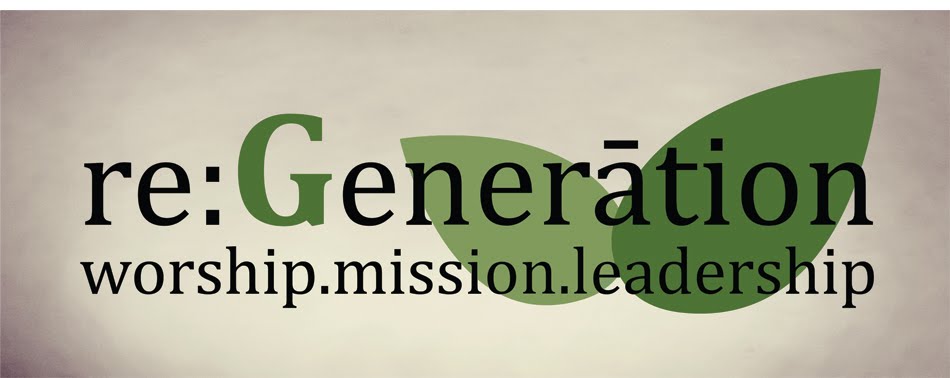I was particularly struck by this a couple of weeks ago after I shared the following story with a group I’m a part of in Portland made up almost exclusively of non-Christians. The story I told went like this . . .
For the past month and half—stretching back to about the middle of November—I’ve been spending most of my time and energy in preparation for a new project that’s going to launch in just over a month. With somewhere between two and three hundred people watching to see what happens, it’s a very public project.I finished telling the story and the very next person to speak (a non-Christian man in his mid-fifties) said something like this: “I’m one of four people starting up a new project later this year. I’m the only one getting paid. The last few weeks have been tough. I’ve been so consumed by fear, particularly the public fear of failure. I wasn’t sure why I came today and now I know. After hearing that I have a hope that ten minutes ago I didn’t know existed.” After the meeting ended we connected and I was able to talk to him more about how the irony of my situation arose from the fact that my whole understanding of spiritual reality is rooted in grace, that God doesn’t accept me because of who I am but because of who He is. (I wish I would have said more about Jesus in our conversation, but I’ll see him again and we’ll get to talk more down the road.)
I myself am one of four central leaders helping to drive the project forward and provide vision. In addition to the four of us, there’s another thirty or so that have joined in and committed to giving some sort of personal service. Of those two groups (meaning out of those thirty people), I’m the only one getting paid.
Back in December, in preparation for the project, I set a very specific, personal goal to deal with a particular moral problem in my life. With the help, support and rigorous accountability of a good friend, I met that goal in December and I’ve continued to live within its boundaries in January as well. The goal itself wasn’t anything spectacular. It was basically another step toward tightening-down an area in my life that I’ve been making meaningful advances in for a few years now.
On top of that, throughout December, with this new project clearly in view, I prayed with more intentionality, more focus and a great deal more regularity than usual. In fact, on January1st, I brought the New Year in with prayer and fasting, both of which are very positive spiritual practices for me.
I say all that to say this: I went to bed on January 1st absolutely wrecked. All of those positive behaviors and all of that healthy, spiritual living and I was awash with anxiety, unable to sleep. The reason I couldn’t sleep was simple: fear of failure. I had given my heart to the idol of personal success.
My thinking went like this: “Here I am, heading up this new and very public project with all these people counting on me to make it happen and even more watching from the stands to see if it does.” In that moment what I believed was if the project succeeds, then I’ll be a success; but if it fails, then I’ll be a failure. In other words: “I am this project. If it wins, I win, I’m a winner. If it loses, I lose, I’m a loser. And (even more wrecking) everyone watching will know.”
After some reading and prayer I eventually fell asleep and January 2nd came. A week later, I was talking to the same friend who had been helping me with the goal I mentioned earlier. I told him about all the good things I’d been doing and how despite that I’d been so gripped by fear on New Year’s Day. After I finished, he looked at me and said (pretty matter-of-factly), “You know, whether this project succeeds or fails, I wouldn’t honestly think you had all that much to do with it either way. You’ll led. You’ll teach. You’ll do your best. But why anything is successful or not is (for the most part) a mystery up to God.”
I was struck. On the one hand, part of me hated what he’d just said. I wanted to pushback: “Wait a minute, that’s great if this thing tanks, but if the project’s a success, I want people to think I’m a success.” On the other hand, another part of me (the honest, sane, less-self-promoting part of me) loved it: “If that’s the case then all I have to do is breathe and be obedient. The whole success-or-failure bit isn’t in my court.” Suddenly I saw there was freedom in what he’d said. Freedom, sanity and hope.
What hit me about that experience was how an implication of the gospel—even though the guy I was talking to didn’t even know what to call it—was in that moment good news. It really was. After all, it’s good news to hear that our failures don’t ultimately determine our worth; it’s good news to find out that we don’t have to be controlled by our fear of people’s opinion; and it’s good news to learn that instead of judging us by who we are, God accepts us unconditionally through the worth and righteousness (i.e., the success) of His Son. The gospel’s good. It really is. And sometimes we need to be reminded.
.jpg)
0 comments:
Post a Comment